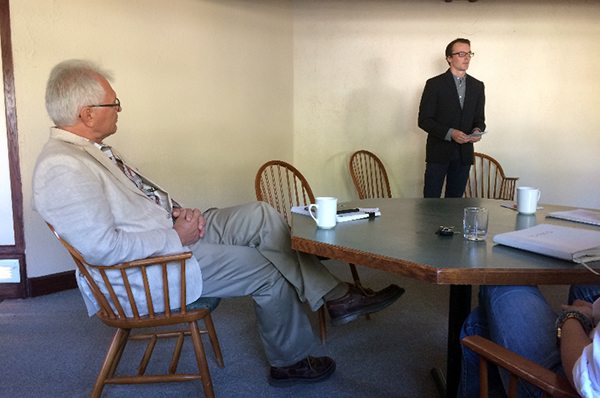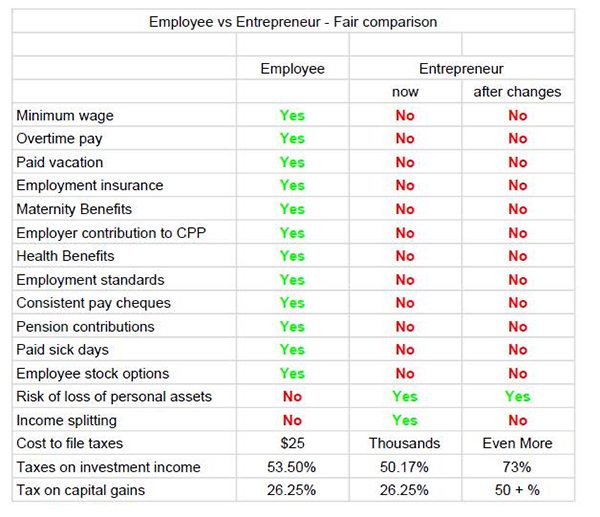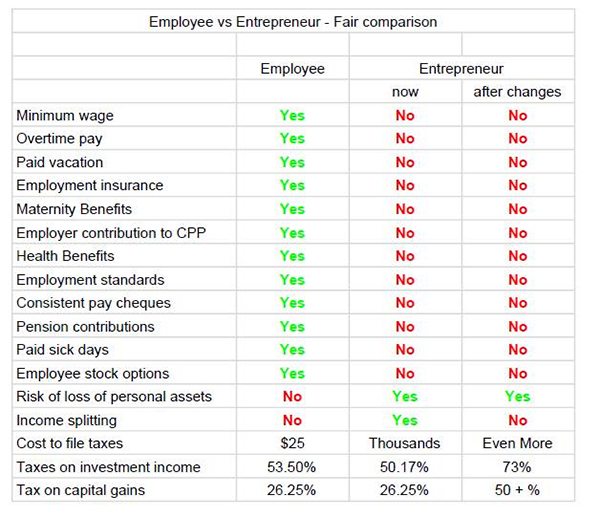Home »

Proposed business tax changes: why you should care

By Michelle Forbes
The Kootenays are made up of small businesses. Walking down any street in any city or town in the Kootenays; dozens of little shops catch the eye.
Small businesses, stores, and restaurants liven up the community and offer employment opportunities, as well as places to meet with friends and family. Small businesses are the lifeblood of our communities, and these are the businesses which will be most affected by the Prime Minister’s new proposed business tax law changes.
The farmer who wants to pass on their farm to their children; the local restaurant or coffee shop investing money back into the economy – employing people, supporting events, and sports teams. These may become a thing of the past. These laws won’t just affect business owners. These laws will affect the people these businesses employ, and the economy as a whole.
Kootenay-Columbia MP Wayne Stetski has been holding meetings with city hall officials, local chambers, and business owners all around the Kootenays, concluding on Monday, September 11, with a meeting in Kimberley before heading back to Ottawa to fight this new proposed legislation.
Kimberley’s meeting began with Tax Accountant Kenton Lane from Hyrcuik Gallinger breaking down the tax law changes that will affect business owners.
- Income Sprinkling. Income Sprinkling is a tax law which allows business owners to pay up to $25,000 in dividends tax free from the business to their spouse and adult children, even if they are not involved in the business. The question may be, do families contribute to a family business if they don’t directly work for it? Do they deserve these tax-free dividends? Consider this – business owners almost never work 40 hours a week. Especially in a small business that is starting out or growing. They often work 60, 70, or even 80 hours a week.
The family takes on the risk of the business. Family homes are often collateral for loans to buy a business. The family gives up seeing a parent or spouse, so the family can invest in the future. Giving up money from the business to reinvest in the community they live in, saving for rainy days, fixing machines when they go down, supporting events or sports teams, hiring more people, and making more jobs, these all take money that could be saved for the future. Each of these risks taken, will affect the family along with the business owner running the business. The risk taken and extra hours invested make it “fair” for them to receive some extra tax breaks. - Passive income tax. Business owners can earn money and reinvest it, leaving it in the company to be used later, as a retirement fund, for children’s education, or to reinvest in the company later down the road. These investments can be drawn on for the business as necessary, and earn interest for the company. These investments, and the interest they earn, are considered passive income. This income will be taxed at 71%. That means only 29% of the interest earned can be saved or reinvested into the company. Currently, businesses can reinvest about half of this income back into the company, into the community, or invest it for later. Increasing this tax rate by 50% will decrease the viability of businesses, and discourage businesses from investing their profits in the community or saving for the future.
- The government believes that business owners have an advantage, because they can leave money in the business to reinvest it. Under new laws, the government plans to tax any money left in the business at the end of each year between 71 and 93%. There will be no incentive to leave money in their business, and will make it less viable to own a business in Canada. Lack of incentive to own a business decreases the net worth of all businesses and has a huge negative impact on the economy as a whole. Small business owners used to leave money in their business for their retirement, which they could take out to use for the business, maternity leave, sick leave, or other unplanned events as necessary. This will no longer be a viable option.
- Capital Gains exemptions. When a small business is sold in Canada, the owner has $800,000 tax exemption before they start paying taxes on the business they are selling. Their spouse and adult children also have the same tax exemptions that can be used, and added together. The new tax laws would stop these extra exemptions, which effectively makes it impossible to pass on a business – like a family farm, for example – to any children.
MP Stetski explained it like this: if a business is worth $1.5 million, you can sell it to a stranger, and they do not have to pay taxes on it. If you sell it (or gift it) to your children, they currently pay $360,000 in taxes under the current tax laws. Under the new tax laws, they would pay $1 million dollars in taxes to inherit a family farm from their parents. How is that tax fairness? Businesses are still trying to wrap their heads around it.
Stetski stated that 90% of Canadian businesses are these small businesses. But they are not the only ones affected. In B.C., doctors’ salaries are calculated, based on these tax advantages, or tax laws – what the Prime Minister refers to as loopholes – and they spend several years paying off student loans with those “high salaries” before they ever start accumulating any money for themselves. The tax laws target them as well.
Lane said the new tax laws boil down to this: there will be less money in businesses; and the less cash people have, the less they will invest; thus there will be less money for everyone. And with a 75-day consultation period, 60 days of which were during July and August, it seems obvious the government is trying to push these laws through without anyone noticing.
Stetski said that although the increased tax income to the government will be significant, the decreased interest in owning a business will lose the government money in the long run, as this is likely to create a downturn in the economy.
Other professionals seem to agree with this assessment.
Peter MacIntosh, a partner at White Kennedy LLP responded to the Prime Minister’s line “I want to be clear: people who make $50,000 a year should not pay higher taxes than people who make $250,000 a year.”
MacIntosh stated a corporation earning $250,000 would pay between $37,500 and $67,500, with more tax paid on any dividends taken out of the company. An employee earning $50,000 would pay $8,000 in taxes. He also states that the proposed tax laws will have a negative effect on the entire Canadian economy. It is not tax fairness, he says, when public servant employees can have pension plans of up to $2 million dollars, but business owners, who are the lifeblood of the economy, are not given these same opportunities.
The overarching belief from business owners, doctors, lawyers, tax consultants, and all those studying these changes seems to be that, “fair does not mean equal,” as David Kaufman from the Financial Post stated.
Businesses take risks, guarantee loans, miss paycheques to pay employees, work countless unpaid hours, reinvest in creating jobs, support the community, make businesses that people can visit and buy things from. It lets us know the butcher, the baker, and the barista. It allows us to shop local and eat local. It allows us to have a vibrant community that can take care of itself, instead of always reaching out into government coffers. In short, it allows us to succeed; sll in our own ways. These tax laws would stop this from happening.
This graph, first posted on Linkedin by Tim Miron, Partner at Beckett Lowden Read LLP, seems to best show the tax fairness, both now, and under the new tax laws. 

The best way, according to MP Stetski, to fight these changes is to contact your local MP and the Prime Minister and ask them to change the 75-day consultation, and to review the tax laws they are changing. They need to listen to small business owners and tax lawyers to make reasonable tax changes that have been well researched, instead of punitive ones put together by multimillionaire government officials in back rooms. Or maybe they just need to spend a week in the shoes of a small business owner to realize their value to the economy. Then see what they think is “fair”.
Above image: MP Wayne Stetski and Trenton Lane, Tax Consultant, address business owners in Kimberley. Michelle Forbes photos







